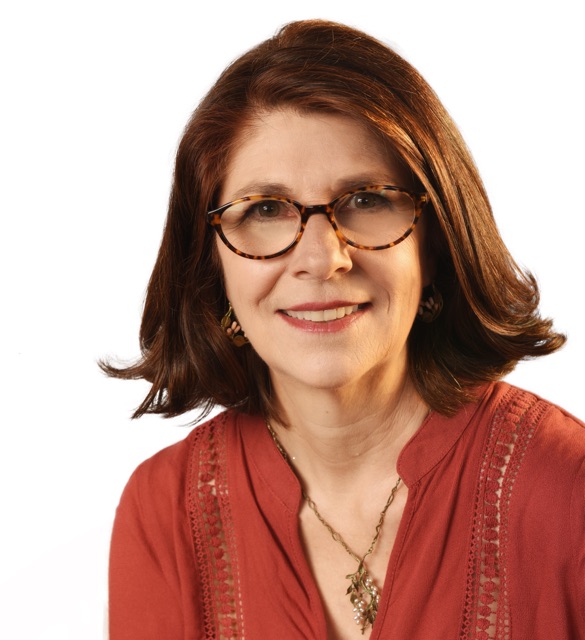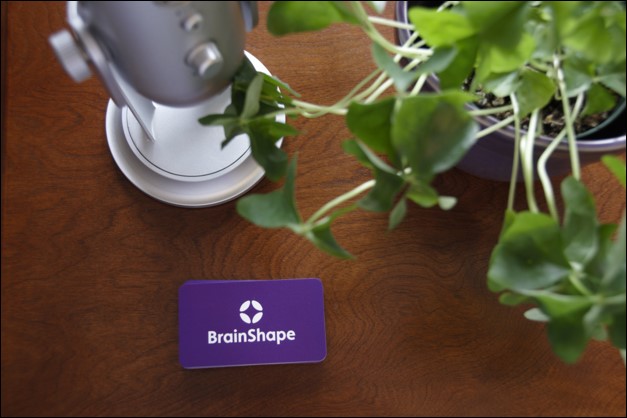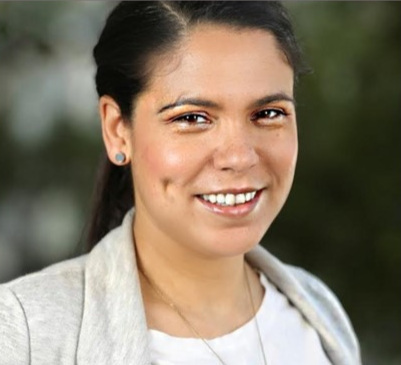Stress is a regular part of life. As humans, our stress response evolved as a survival mechanism giving us the physical strength and mental agility to deal with a life-threatening situation (such as a predator); but, in our current day life, humans feel stressed by many non-life-threatening situations. In today’s episode, we’re talking all about stress: what it is, how it affects your brain as well as your body and some strategies you can use to help manage the stress you experience on a day-to-day basis.
Episode 25: Memory with Dr. Andrea Wilkinson
Your memories help make you who you are. Although the hippocampus is crucial for memory formation, memories are not stored in one specific area of the brain. In fact, strong memories often include sights, sounds, smells, and emotions. So, emotionally powerful memories will link many different areas of the brain together. In this episode we’re talking about all about memory – the different types of memories that you have, how memories are formed and three tips you can use to help boost your memory performance.
Episode 24: The Gut-Brain Connection with guest Doug Cook, RDN
Your gut and your brain are inextricably linked. What you eat and drink affects your body, your brain, your mood, and your risk of disease. Your brain and your gut are physically connected via the spine and your vagus nerve – but, your gut and your brain are also in constant and regular communication. Today we’re talking with Doug Cook, a Registered Dietitian Nutritionist (RDN) and the Gut Brain Guy! Doug has over 20 years of experience and believes that health is the greatest wealth.
Episode 23: Age like a Goddess with guest Ann Gentry
Eating to help support brain health is fundamental. In this episode, we’re talking with Ann Gentry – the founder of "Age like a Goddess: Life-enriching Cooking and Coaching." When Ann Gentry set out to revolutionize the world with a plant-based cuisine, people told her she was crazy. Twenty-five years later, people called her a pioneer of the organic and vegan cooking world. Ann Gentry is on to the next frontier in healthy eating and lifestyle with a focus on eating for brain health and healthy aging.
Episode 22: Happy Brain Chemicals with guest Dr. Loretta Breuning (Part 3)
Welcome to the conclusion of our three-part series on happy brain chemicals with Dr. Loretta Breuning. If you missed the last two weeks of the podcast, I strongly suggest that you go back and listen to the three-part series in order, starting with episode #20. In today’s episode, we’ll be taking a deeper dive into the content covered in some of Dr. Breuning’s books, including Habits of a Happy Brain, Tame your Anxiety and the Science of Positivity. We’ll also touch on her podcast: The Happy Brain. Our guest Dr. Loretta Breuning, Founder of the Inner Mammal Institute, helps people manage the ups and downs of their mammal brain.
Episode 21: Happy Brain Chemicals with guest Dr. Loretta Breuning (Part 2)
Welcome to part 2 of our three-part series on happy brain chemicals: dopamine, serotonin, oxytocin and endorphins, how they work and how your everyday actions impact their flow. If you missed last week’s episode, I suggest you go back and listen to it first (click here), before jumping into today’s episode. Today, we will be talking about oxytocin (your brain’s love chemical) and endorphin (your brain’s pain masking chemical). Dr. Breuning also shares with us some exciting information and insights about how to build new neural pathways.
Episode 20: Happy Brain Chemicals with guest Dr. Loretta Breuning (Part 1)
In the next three episodes (three-part series), we will cover the topic of happy brain chemicals: dopamine, serotonin, oxytocin and endorphins. Our guest, Dr. Loretta Breuning, is the Founder of the Inner Mammal Institute and an author of eight books, including "Habits of a Happy Brain”. In this episode, we will cover part 1 of our three-part series. You’ll be introduced to Dr. Loretta Breuning and learn valuable information about dopamine (our brain’s reward chemical) and serotonin (our brain’s pleasure chemical).
Episode 19: The Benefits of Physical Exercise & How to Stay Active
Physical exercise is good for your body and your brain. In this episode, we’ll be talking about the benefits of regular exercise and different ways you can get your body moving. The content from this episode was originally a guest blog post written by Jackie Cotton – a physiotherapist. Given her expertise, we are re-sharing some of the excellent information Jackie Cotton provided about physical activity and resources on how to stay active.
Episode 18: The Top 6 Secrets to Forming Healthy Habits
Episode 17: The Limits of Brain Games with Dr. Andrea Wilkinson
The billion-dollar brain training industry would have you believe that playing brain games on your computer or mobile device will help boost your mental functioning, but the scientific research on the matter tells a different story. Brain games help you get better at the game, but they do not help you to improve mental functioning overall. We need to step away from training discrete cognitive abilities using computerized programs and apps and engage in the complexity that exists in our everyday worlds.
Episode 16: Five ways to stay engaged in Toronto this summer (2019)
Staying active and engaged in your community is a central pillar to maintaining your brain health. There are so many free and fun activities happening in and around the city – so, in this episode, I will be sharing five ways to stay mentally and physically active over the summer months. While it is so important that we stay mentally and physically engaged all year round, the summer months are a perfect time to get out into the world to explore, learn, move your body and be with friends and family.
Episode 15: Building a Resilient Brain with Dr. Andrea Wilkinson
Having a brain that is highly efficient, dynamic and adaptable in the face of challenge will always be a noble pursuit. In this episode, Dr. Andrea Wilkinson talks about brain reserve and cognitive reserve, including research evidence that supports its existence and tips on how you can enhance your own “reserve”. The idea that – over time – our brains can develop the ability to function “normally” in the face of structural and functional changes is extraordinary. This ability is called “reserve,” and its expression only really comes into play, when our brain undergoes some type of change or damage.
Episode 14: Happy Seniors’ Month with Dr. Andrea Wilkinson
In celebration of Seniors’ Month in Ontario, Dr. Andrea Wilkinson was invited to speak at the Toronto Seniors Services Event at City Hall in Toronto. This year, 2019, marks the 35th annual Seniors Month in Ontario and the theme is “Aging Strong”. If you’re interested in hearing Dr. Andrea Wilkinson speak live about BrainShape’s approach to brain health, you don’t want to miss this episode. How are you “Aging Strong”?
Episode 13: Stroke, Dementia and Brain Health with guest Dr. Vladimir Hachinski
Dr. Hachinski has transformed our understanding, diagnosis, treatment and prevention of the two greatest threats to the brain: stroke and dementia, and he co-discovered a link between Alzheimer's disease and stroke. He has published 18 books, including Treatable and Potentially Preventable Dementias (2018) and over 800 frequently-cited scientific articles. He received the Order of Ontario and was appointed to the Order of Canada. Dr. Hachinski is currently a Distinguished University Professor of Neurology and Epidemiology at Western in London, Ontario. He has received numerous awards and prizes and in 2018 was inducted into the Canadian Medical Hall of Fame.
Episode 12: Oral Health & Healthy Aging with guest Dr. Bei Wu
Oral hygiene is a regular part of most people’s daily lives. But, did you know that oral health (such as brushing your teeth daily and visiting your dentist regularly) is related to many health outcomes, including cardiovascular disease, diabetes, depression, quality of life and even your mental functions? To help us better understand the relationship between oral hygiene and healthy aging, we’re talking with Dr. Bei Wu – a professor at New York University’s (NYU) Rory Meyers College of Nursing and Co-Director of the Aging Incubator at NYU. Her numerous publications cover a variety of issues related to oral health and its relationship to healthy aging.
Episode 11: All about Caregiving with guest Craig Knowles
There are approximately 8 million informal caregivers in Canada – that is more than 1 in 4 Canadians who put in regular hours to care for their loved ones, family members and friends. Today we’re joined by Craig Knowles who has lived experienced as an informal caregiver for his partner and aging parents. In this episode, Craig shares his knowledge and provides tips and advice on being an effective caregiver, which includes time management and prioritizing his health.
Episode 10: Sleep and the Aging Brain with guest Sasha Usyatynsky
Sleep is a basic human need. In this episode, we will be talking about sleep systems, age-related changes in sleep patterns, myths about sleep, various sleep disorders (including sleep apnea and insomnia) and cognitive-behavioural therapy as a common treatment for insomnia. Our guest is a PhD student in clinical psychology. She shares a lot of amazing insights about sleep and the aging brain, as well as tangible tips you can use to ensure you are getting the sleep that your body and your brain needs.
Episode 9: Volunteering and Healthy Aging with guest Dr. Nicole Anderson
There are many benefits associated with volunteering, including increased longevity, better self-reported health status, less depression, and more life satisfaction. There's even evidence that shows that volunteering can impact your cognition (mental abilities). In this episode of the BrainShape Podcast, we're talking with Dr. Nicole Anderson about the benefits of volunteering in older adults, the optimal amount of time required to elicit the benefits and who benefits the most from volunteering their time.
Episode 8: Taoist Tai Chi Arts & Wellness with guest Bonnie Steinman
Today’s guest takes us on a personal journey through her Taoist Tai Chi Arts practice and the impact that it has had on her life - not only physically and cognitively, but also through the volunteer work that she does with the organization, and the social benefits she experiences when she travels all around the province, country and world to practice. Our guest is Bonnie Steinman gives a very personal and first-hand look at all of the benefits of practicing Taoist Tai Chi Arts.
Episode 7: Staying Engaged as you Age with Dr. Andrea Wilkinson
Today on the podcast, we’re sharing the audio from a talk that Dr. Andrea Wilkinson gave at the University of Toronto, called “Exploring and Developing Tools for Staying Engaged as we Age.” This will be informative for anyone who is not very familiar with the BrainShape platform and – for anyone that is familiar with Dr. Andrea’s story – this audio will serve as a good refresher on why she’s built BrainShape and how this platform will help you build your own successful brain health journey.






















